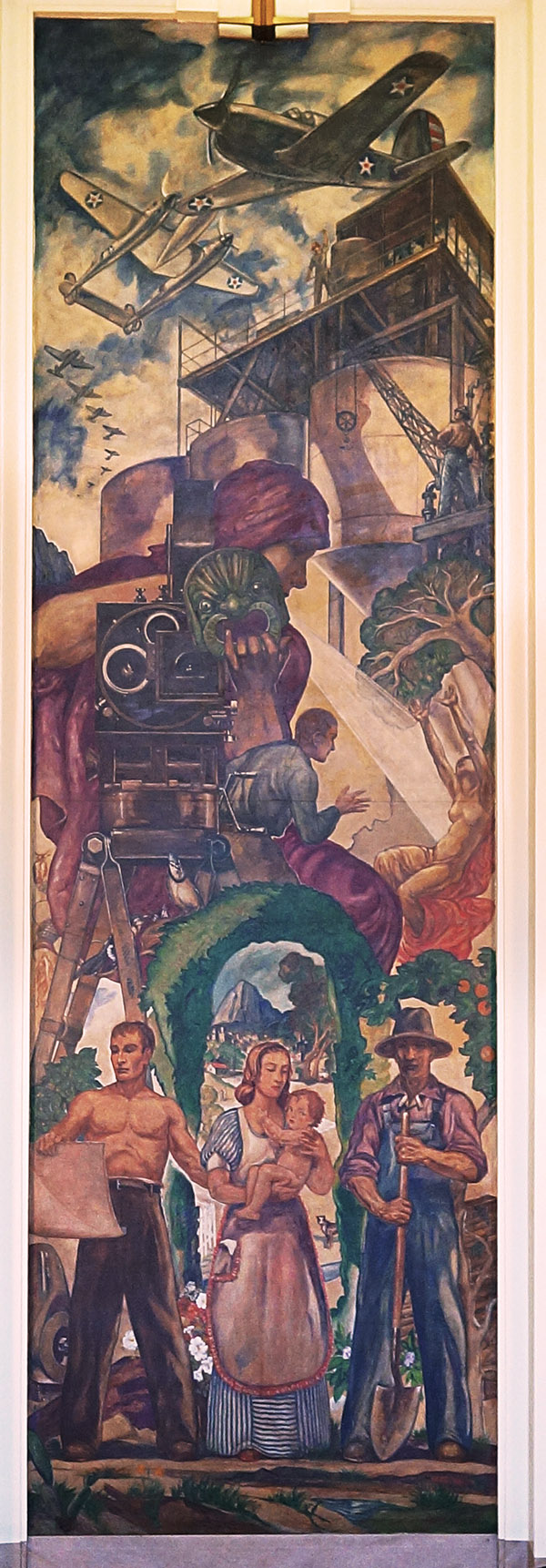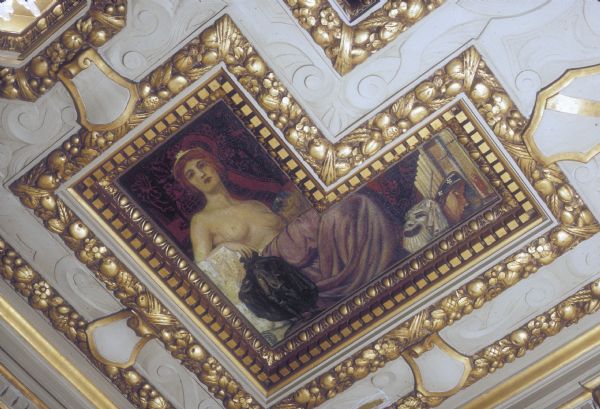Burbank City Hall - Burbank Industry

- Allegory and History
- Cinematic Influences
- Source/Citations
Ballin chose to showcase the workers in the various industries that had contributed to Burbank's development in this panel: farmers at the bottom, a director and actress performing in the middle, and industrial workers at an aviation plant at the top. Each is depicted with the tools of their productive work and/or the fruits of their labor and designed to represent "the economic and social base of the community."1 Notably absent from this panel, however, are the indigenous and Mexican people who occupied the area in the years before Dr. Burbank purchased the land, as well as the Mexican, African and Asian Americans workers who contributed to the city's industrial development. Instead of offering a more complete history of Burbank from its prehistoric origins to "modern times" as he did for the city of Los Angeles in the Title Guarantee Building, Ballin presents a more narrow story of Burbank's three decades as an incorporated city, and a more romantic portrayal of the progress of "Burbank Industry" during that time.
The only allegorical figure in the piece is the outsized woman enrobed in red in the center of the piece. She is likely symbolic of the cinematic arts or perhaps the arts more broadly, as she holds a mask to symbolize drama and theater, thereby echoing Ballin's depiction of "the Spirit of the Arts" in the ceiling of the Executive Chamber at the Wisconsin State Capitol. The size and prominence of the figure - especially when compared to the industrial workers and ultra-modern planes at the top - suggests that Ballin saw Burbank as a capital for cultural production, rather than war production, even though its aviation industry was a far bigger part of the city's economy at the time.
 "The Spirit of the Arts," 1913 |
| Previous page on path | Burbank City Hall, page 4 of 5 | Next page on path |

Discussion of "Burbank City Hall - Burbank Industry"
Add your voice to this discussion.
Checking your signed in status ...